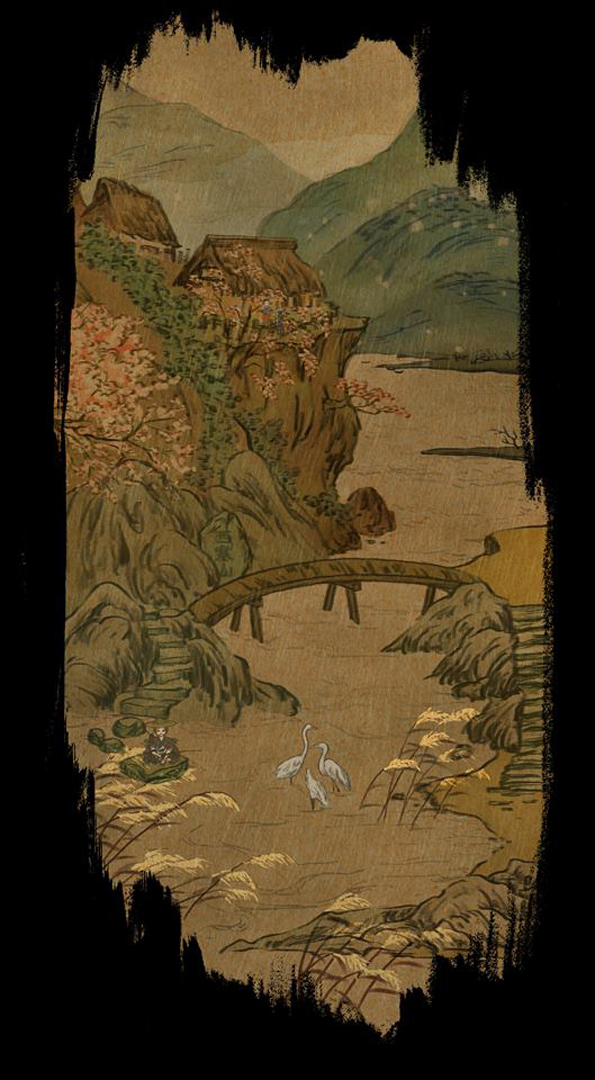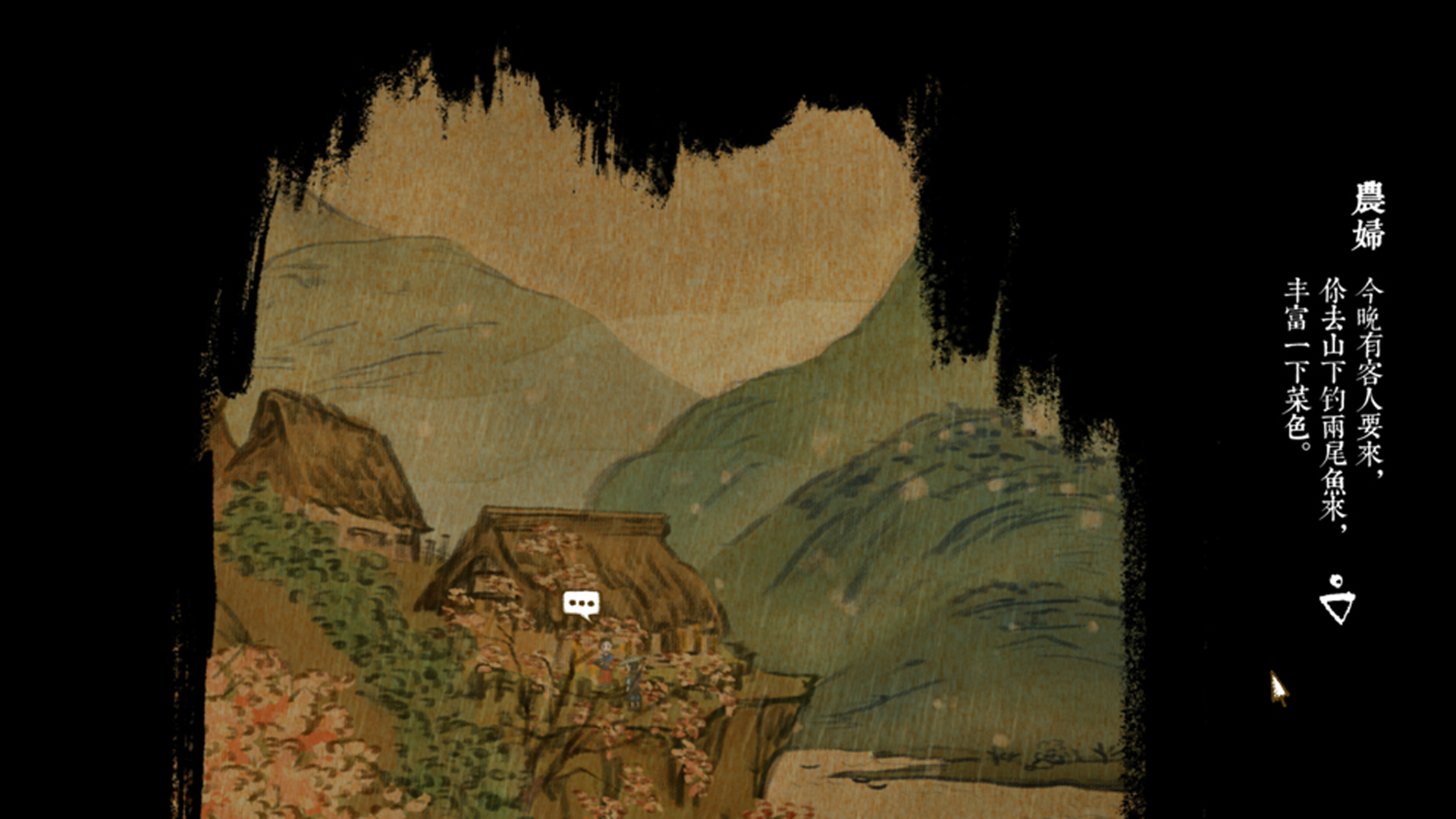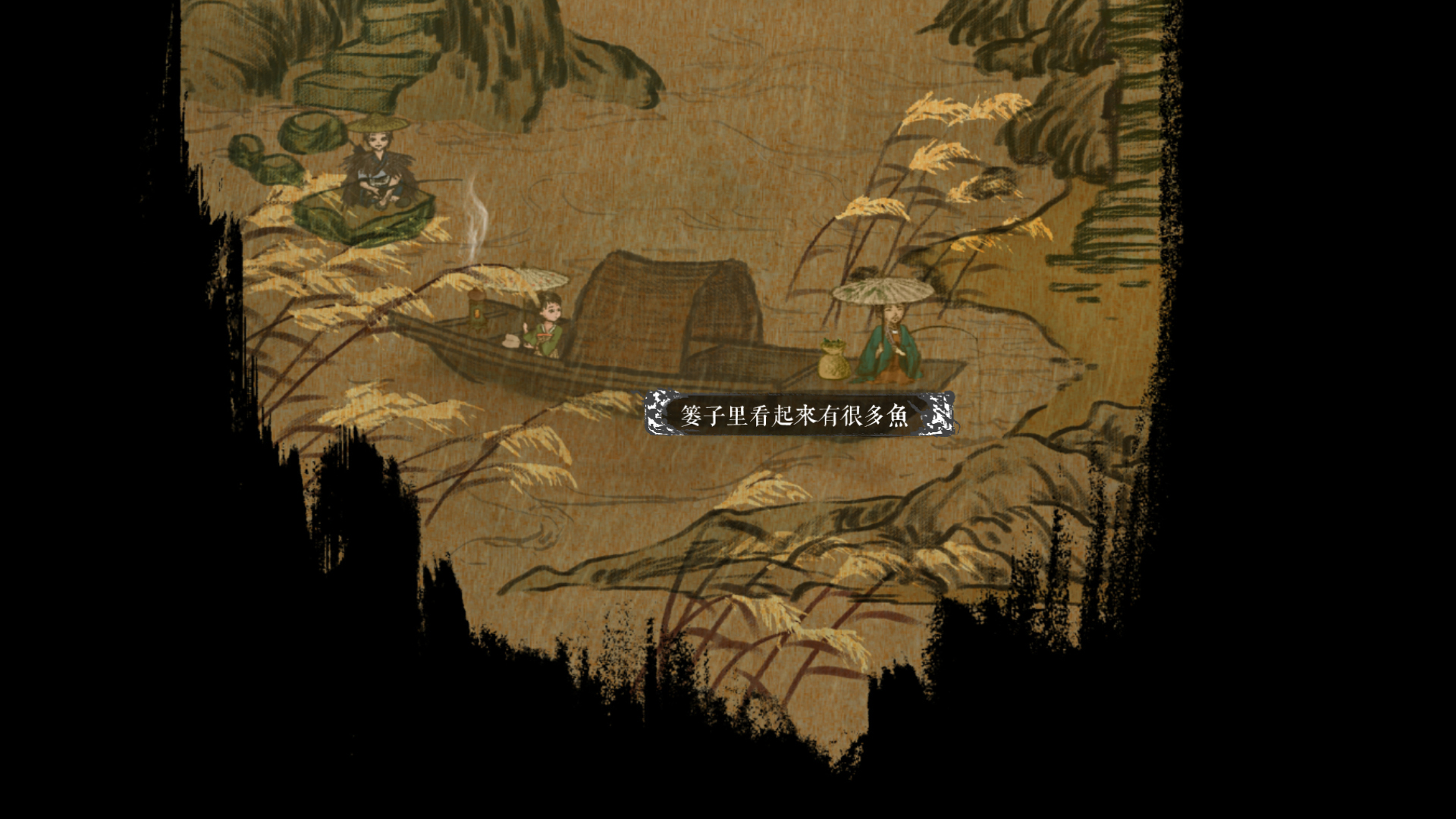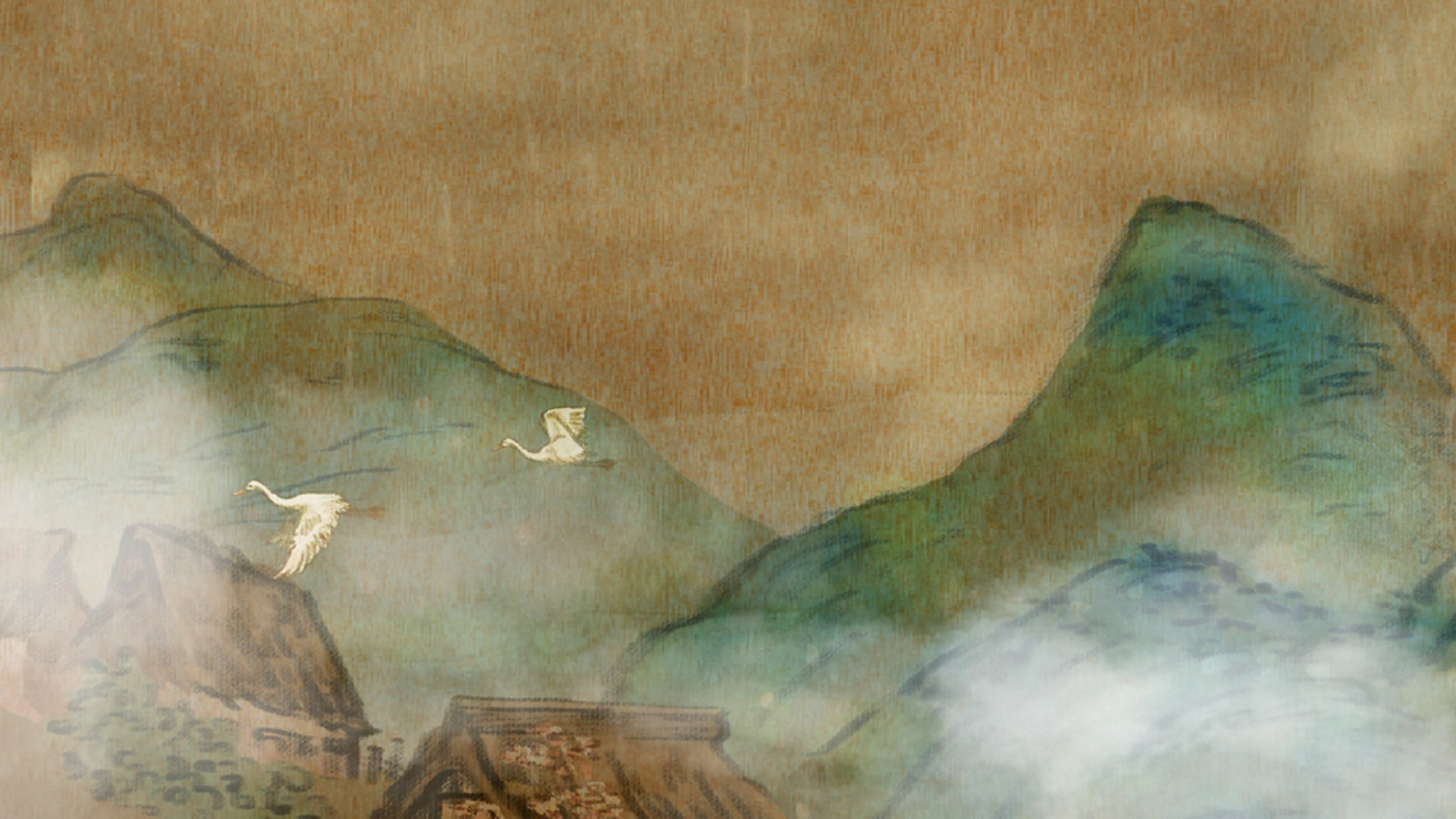“Meet in Rain: A Serious Game to Help the Better Appreciation of Chinese Poems” by Jiang and Nishino
Conference:
Type(s):
Title:
- Meet in Rain: A Serious Game to Help the Better Appreciation of Chinese Poems
Presenter(s)/Author(s):
Entry Number:
- 18
Abstract:
ABSTRACT
Meet in Rain is a serious game on Chinese poetry. While invoking various events, players must complete given tasks, which help them better appreciate the poems, by exploring imaginary sceneries that depict Chinese poems. Its visual design also mimics Chinese paintings in the era when the poems were created. As only a few serious games exist for Chinese poetry and they mostly focus on knowledge acquisition, our work provides a rare design exemplar of a serious game that is designed with the intention to foster aesthetic appreciation for a cultural subject.
Introduction
Many serious games (“games used for purposes other than mere entertainment” [Susi et al. 2007]) are developed today, and education is one of typical purposes among researchers and designers in the field. While there are already a number of educational games for various topics, only a few examples of serious games exist of Chinese poetry regardless of its cultural and educational significance, and there is much left to explore in game design for this highly cultural topic.
We are currently developing Meet in Rain, a serious game on Chinese poetry. In this simple adventure game, a player explores imaginary sceneries taken from several historically important poems regarding rain in the Tang dynasty. Various game events taken from the poems occur during this exploration. They present traditional Chinese imagery, which is visually presented in a style that mimics the traditional Chinese paintings of the same era to help the player better appreciate the poem. Such a game may provide a rare design exemplar of a serious game on a cultural subject, as existing serious games on Chinese poetry mostly focus on knowledge acquisition, not on aesthetic appreciation as ours.
Related Work
We are aware of only a few examples of serious games on Chinese poetry. Dà Tángshī Lù (大唐詩錄: Tang Poems) [Inventec 1996] is a serious game of this kind, which was commercially available in the late 1990s. However, the game is already outdated. While various amusing animation materials were included in the game, it was designed primarily as a simple quiz/puzzle game (for instance, finding the right word to fill in the blank of a poem or reordering the words to constitute a poem).
The Gourd Tang Dynasty is another example of a serious game on Chinese poetry [Chen et al. 2016]. The game shows “situated animation scenarios based on Chinese classical stories for study” and then asks players questions to test their knowledge. If they fail, the ‘tips helper’ encourages them to review the relevant materials. As above, both of these works focus on knowledge acquisition regarding Chinese poetry, rather than its appreciation.
Description of Our Work
As mentioned, regardless of the cultural and educational significance, few examples of serious games on Chinese poetry exist. Hence, we are currently developing Meet in Rain with the motivation of improving the appreciation of poems. Unlike existing works described in the previous section, knowledge acquisition is a secondary purpose in our game. For this reason, our game design does not involve simple quizzes and puzzles but instead focuses on the gaming experience that helps players to appreciate the narrative and atmosphere of poems. For this purpose, we selected poems regarding rain written in the Tang dynasty, not just because it is one of the most popular subjects in Chinese poetry but also because this selection can lead to an opportunity to appreciate various poetic impressions and interpretations regarding the same subject, while maintaining a consistent narrative and atmosphere of the gaming experience. As shown in Figure 1, we also designed game graphics mimicking the style of Chinese paintings in the same era to support such design intentions from the visual aspects as well.
Each stage of the game is designed as an imaginary scenery that illustrates a certain poem. The player lets a main character explore the imaginary scenery by clicking on objects in the screen so that the character can complete the task given at the beginning of the stage. Through the process of exploration, the player character invokes a series of game events designed according to the content of the poems. As noted earlier, our focus on such a design intends to help a player appreciate the imaginative creativity of Chinese poems by active exploration in the game scene.
For example, the first stage illustrates The Fisherman’s Song by Zhāng Zhìhé (渔歌子 by 张志和). The poem celebrates “the power and bounty of nature” and suggests “the isolation and austerity of the fisherman’s life” [Thompson 1998]. This poem, which also depicts light rain, expresses the poet’s sympathy to Daoism that contemplates “the beneficent passivity, the recessive humility, the resilient softness of water” as a portrayal of a fisherman [Thompson 1998]. When the stage begins, the player character is asked to go fishing and must explore the imaginary scenery to finish the task, triggering game events. The events are taken from the poem and presented as imagery in the style that mimics traditional Chinese paintings (as shown in Figure 1) so that players appreciate the imagery of the poem and its meanings and expressions through the gaming experience. The game is currently being designed and extended with more stages that depict other poems regarding rain to help players reflect on the cultural meanings of rain from various perspectives described in the Chinese poems.
Discussion
As described in the related work section, existing serious games for Chinese poetry involve quizzes or puzzles because they are designed primarily for knowledge acquisition. In contrast, Meet in Rain has no such elements to test a player’s knowledge because it is designed with the intention of helping players foster their aesthetic appreciation skills. It motivates players to interpret each poem by giving some images of the traditional Chinese sceneries of the era. As we consider the visual materials to be important to improving aesthetic appreciation skills, we designed the visual materials in the traditional Chinese styles. While it is not easy to evaluate the effectiveness of such a game design in helping players better appreciate Chinese poems, such an effort must be made by designers and researchers of serious games, because it is of significance to foster the ability for aesthetic appreciation in education on classical literature. It would not quite be meaningful if the Chinese literature were presented only as knowledge to be memorized for exams, because such education is merely helpful to inherit cultural and historical values represented in Chinese poems.
Conclusion and Future Work
We described Meet in Rain, a serious game on Chinese poetry. Unlike existing works designed for knowledge acquisition, our work focuses on helping players better their appreciation of Chinese poetry. While it is not easy to assess the educational benefit for such a purpose, Meet in Rain may be beneficial at least as a rare design exemplar of serious games for educational purposes regarding such a highly cultural topic because knowledge acquisition is not the only purpose of the education on Chinese literature. Moreover, it is of significant importance to foster aesthetic appreciation skills. As a future work, we are planning a qualitative user study to investigate how such a game design can be helpful to improve the aesthetic appreciation skills of learners.
References:
- Inventec.1996. ????.
- Hong-Ren Chen and You-Shiuan Lin. 2016. An Examination of Digital Game-based situated Learning Applied to Chinese Language Poetry Education. Technology, Pedagogy and Education 25.2
- Tarja Susi et al. 2007. Serious Games: An Overview. Technical Report HS-IKI-TR[1]07-001 University of Sk?vde, Sweden.
- Kirill Ole Thompson. 1998. What is the Reason of Failure or Success? The Fisherman?s Songs Goes Deep into the River: Fisherman in the Zhuang Zi. Wandering at Ease in the Zhuangzi. State University of New York Press









